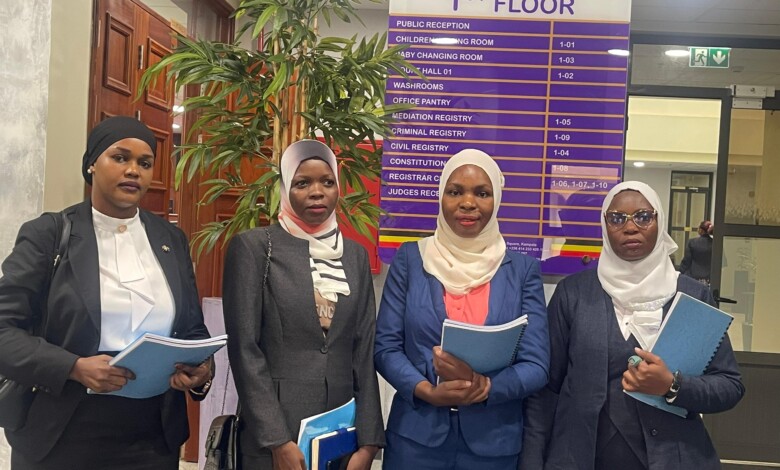Muslim Women’s group petitions court, seeks abortion law reform based on Islamic principles

By Abu Ssettumba
Two prominent Muslim female lawyers and a women’s advocacy group have filed a petition at the Constitutional Court, seeking to align Uganda’s restrictive abortion law with the principles of Islamic jurisprudence and Ugandan culture.
The petitioners—Hajira Gimbo, Zaituna Mutesi, and the Islamic Women’s Initiative for Justice, Law and Peace—are challenging the constitutionality of Sections 130 and 131 of the Penal Code Act, which criminalize abortion. They argue that the law’s narrow exception, found in Section 207, only permits an abortion to save a mother’s physical life, ignoring critical circumstances recognized under Islamic law such as rape, incest, and severe threats to mental health.
Key to their argument is the Islamic ethical framework surrounding the beginning of life. The petition heavily references the concept of ensoulment, which classical Islamic scholarship places at 120 days (or four months) of gestation.
“We are well-informed of the plight of Muslim women in Uganda, who face heightened barriers to accessing abortion due to stigma, restrictive laws, and misinterpretations of faith,” their petition reads in part.
The petitioners contend that the current law forces Muslim women into a cruel dilemma: either break the law to access a procedure their faith may permit for compelling reasons or suffer in violation of Islamic principles of mercy and justice.
“Denial of safe abortion in cases of rape, incest, mental illness, or serious risk to a mother’s mental health is a health crisis and a denial of dignity. There is no justification for the continued restrictive interpretation of Sections 130, 131, and 207 of the Penal Code Act, which violates Islamic principles of rahma (mercy) and adl (justice),” the petition adds.
The legal challenge asserts that the Penal Code Act contravenes Article 29(1)(c) of the Ugandan Constitution, which guarantees freedom to practice one’s religion, and Article 37, which protects the right to practice one’s culture.
The petitioners are seeking a court declaration that would compel the Attorney General to amend the law to:
- Widen the legal grounds for abortion to include pregnancies resulting from rape, incest, and where there is a severe risk to the mother’s mental health.
- Decriminalize women and doctors who procure or perform abortions under these specific exceptions.
- Explicitly recognize the Islamic ethical guideline that any termination under these new exceptions must be performed within the first 120 days of pregnancy, in accordance with Islamic jurisprudence.
To support their argument, the petition references several African nations with laws compatible with Islamic principles, including Tunisia, which permits abortion up to the first trimester, and Rwanda, which allows it in cases of rape and incest.






